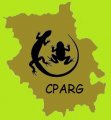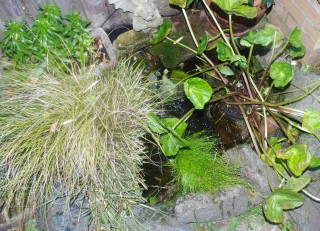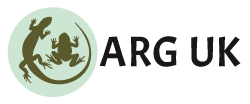About us
About Us
Welcome to CPARG - Cambridgeshire and Peterborough's local Amphibian and Reptile Group. ARGs are local, grassroots amphibian and reptile conservation groups spread out throughout the UK, usually organised by county. As a volunteer run group we get up to a whole range of activities – newt surveys, frogspawn counts, advice service, liaison with planning authorities and consultancies, data collection/collation, training, chytrid swabbing, talks and presentations. The opportunities are endless! Events are held on nature reserves and throughout the wider landscape, and while our focus is on Cambridgeshire there are good links between neighbouring ARGs with access to shared away-days, conferences and training available.
We are run by and for volunteers, and we'd like you to join. We're looking for members – people who might be interested in surveying, receiving training, attending talks, sharing their knowledge and experience, or getting involved in any way with amphibian and reptile conservation locally. We're also looking for new committee members to help with the running of the group, most importantly in organising and/or running events (surveys, training, talks, habitat management etc).
Map of some sites we work on:
Social Networking
Please join our Facebook for discussions with other members.
Twitter/X
Please follow us on Twitter for all of our latest updates.
Blog - WordPress
Please visit our blog for updates on our events and activities! CPARG has been active on Wordpress since 2016 and we share regular updates there.
News
News
South Angle Farm and the Lion Learners
The site has a lot of potential for herptiles if they can navigate the fairly harsh looking agricultural fields (maybe via the often quite wild looking ditches) to the farm. There's a fantastic timber pile for hibernation, a massive compost heap for grass snake egg-laying, and areas with a mix of tree cover, scrub and rough grassland. But for my money the most exciting opportunity is the combination of space, willingness and access to a cheap digger to build ponds! There's scope for a single large pond area, many smaller ponds, or some combination in between.
I left Dave with a daunting stack of links to pond and habitat creation guides but with the basic message, all things being equal is this: more ponds are better than less, shallow ponds and slopes are better than steep, and on a blank canvas like this it's probably a case of 'you can do no wrong, only more right' when digging ponds.
I'm sure Dave will keep us posted on his progress and it's looking likely that once the ponds are in we've already got at least one volunteer lined up to survey them for amphibians to see how quickly they colonise the site.
I left full of enthusiasm for the project - and at least as excited as the kids he normally deals with to have held the exotic snakes, lizards and tortoises that started this all off.
Paul Furnborough
CPARG Re-Launch Wednesday 14th November, 7.30-9.30PM, Cambourne
UPDATE WITH SCHEDULE AND LOCATION!
WEDNESDAY 14TH NOVEMBER 7.30 – 9.30, @ BCNP Wildlife Trust, Cambourne:
The Manor House
Broad Street
Great Cambourne
Cambridge CB23 6DH
(map in link: http://www.wildlifebcn.org/about-us/contact-us/our-staff-cambridgeshire)
7.30 - arrivals, introductions, networking
7.45 - three short presentations (with space for 5mins Q&A on each):
- What is ARG-UK and what do ARG's do? - Jon Cranfield, ARG-UK Vice-Chair
- A Jewel in the Crown - A quick case study from the biggest GCN population in the world! - Paul Furnborough, CPARG Chair
- CPARG and You - An introduction to CPARG - Paul Furnborough, CPARG Chair
If anyone else would like to make a presentation please let me know and I'll add it to the agenda.
These introductory talks will lead into the evening meeting and activities as follow:
8.30. Activities to map attendees interests (amphibians/reptiles), experience, locations and preferred activities (e.g. talks, surveys, training, habitat management etc).
8.40. Discussion on existing, potential and new opportunities (e.g. NARRS, HNR surveys or work on sites new to sites to CPARG respectively).
9.00. Organisational structure - committee roles, joining the committee, communication: mailling lists/facebook, working and speaking as CPARG, membership costs.
9.20. Pub Quiz
9.30. Home Time!
This will be the first of our winter programme of activities ahead of a busy spring and summer of survey fever. It will invariably lead to another meeting (or committee meeting) to work forward the ideas developed on the night - full details will be annonuced ASAP.
It's a tight schedule for 2hrs so I may have to cut discussions short. All ideas raised will be recorded and discussions can be continued either online or in person at the follow-up meeting.
Please let me know if you'd like to attend, agenda items which aren't yet included, or if you'd like to give a presentation.
RSVP to paul.furnborough@sjc.oxon.org
Conference Season
http://www.arguk.org/
See you there,
Paul
What will CPARG do?
Here’s my view on what CPARG’s role is within the local conservation landscape – please comment and join the discussion on facebook:
https://www.facebook.com/groups/359600824061282/doc/376892658998765/
1) A one-stop-shop for herp conservationists in the county, signposting them to talks, training, surveys, habitat management etc which is already happening hosted by Froglife, WT, CPERC etc. If you’re running any herp events in the county please let us know and we’ll advertise them for you. As an end goal I’d like our website to signpost resident herpetologists to every talk, training event, organized survey opportunity and herp habitat management event in the county, whoever it’s organized by. If herps are your specific interest then we should be the place to come looking – even if we didn’t organize any of our own events.
2) We will also provide a forum for discussion between enthusiastic herpers. Should an idea emerge for which there is energy to pursue then the committee will facilitate putting that idea into action by helping with materials, permissions, risk assessments, advice, insurance etc, so we will generate our own exciting in-house events.
3) This allows us to share rumours of locally rare species e.g. adders and palmate newts and try to find new populations, or to help the county recorders in verifying reports local to our network of members.
4) We can also provide a local focus for national campaigns, like the Big Chytrid Swab of 2011 to co-ordinating volunteers for NARRS surveys in the county.
5) As a volunteer outfit we can also take on small-scale but very worthwhile conservation jobs which staffed charities can't afford to do, e.g. one of the ARGs recently restored a garden pond for cresties which no-one else would dare touch, but the ARG had the expertise and the willingness to get involved and manage it sensitively.
6) We may need to expand the committee to include specific roles. e.g. I'd very much like to recruit someone to co-ordinate signposting volunteers/members to help with their local toad patrols or to find out the status of 'lost' sites. I’ve also had a couple of requests for action on sites which are at risk of mismanagement or development where our expertise could be shared with the necessary authorities. I'm hoping to learn from other ARGs and bat groups what sort of things we can usefully get involved with, although a lot will depend on our membership and where your interests lie. If you've got any ideas you’d like to pursue please bring them to the table.
Paul Furnborough, Chair
Joining CPARG
CPARG will also act as a hub advertising herp events hosted by other organisations. Non-members will have access to an announcements list of these events.
Details of how to join will be posted along with minutes from the meeting. Until then please bring money in cash to the first CPARG event you attend and we'll make sure we've got all your contact details there.
Cambs Pond Project
Cambs Pond Project
Recent research as identified that urban ponds provide numerous and diverse roles including their ecological function with good quality ponds acting as stepping-stones and refuges for wildlife species within a suriunding of otherwise inhospitable habitat. With this in mind, we are currently looking to find out where all of Cambridge's urban ponds are in an attempt to learn more about the potential dispersal routes of the City's amphibians. It is important to know both where amphibians breed (in terms of public areas) but also where they may also hibernate, which is usually away from breeding ponds and in gardens. Of course amphibians will also breed in garden ponds too and this is useful additional information that we are hoping that you, the constituents of Cambridge will be able to help provide us with. If you're happy for us to make a visit to your garden to survey the pond or give you some advice on how to improve your pond or garden or amphibians then please also let us know of your address. If this is not the case, then please provide us with a grid reference of your pond's location which you can easily find using this free online tool.
Even small garden ponds like the one above can offer plentiful opportunities for amphibians to breed and feed. If you do have a garden pond, the please do get in contact and let us know what species of amphibians you find in it, whether it is stocked with any fish, how old the pond is and how big it is. It is hoped that this information will be used to help inform planning and management of urban areas within Cambridge to benefit amphibians and other wildlife which tend to share the same corridors.
Disclaimer: Any data you share with us will not be shared with any third party groups without your permission first.
Our Projects
Our Projects
CPARG prides itself with the important conservation research that the group runs throughout the county. Below are short summaries of some of these projects and information on how you can get involved.
Amphibian Surveys
CPARG monitors a number of amphibian populations around the county with the majority of the committee being great crested newt licence holders. There are sites of interest throughout Cambridgeshire which are home to the four most widespread amphibian species, common frog, common toad, smooth newt and great crested newt. A small number of sites are also home to some rarer species (for Cambridgeshire at least), such as the palmate newt. These are generally surveyed at night using a combination of methods such as torchlight surveys and bottle trapping. To get involved, keep an eye on our blog and our events.
Reptile Surveys
CPARG opportunistically monitors a small number of reptile populations around the county, with the focus being populations in or around Cambridge. These include the monitoring of slow worms at Wandlebury Country Park (see below) and of common lizards at Bramblefields Local Nature Reserve. To get involved, please keep an eye on our blog and our events.
Toads on Roads
Toads on Roads is a national initiative which aims to help set up and manage toad crossing across the country. Roads are a huge issue for amphibians, with the main threat being that of cars. Roads bisect amphibian migration routes between breeding ponds and over-wintering sites and so the aim of a toad crossing is to help as many toads as possible make it to the other side of the road. There are a number of registered toad crossings within the county, with one of CPARG's most active ones is in central Cambridge. Every year we are on the lookout for volunteers to help us with toad patrols throughout the county.
Toads have declined around 70% in the UK in the last thirty years, and being hit by cars is one of the main causes. The toad patrol is one way of making a real difference to protecting these remarkable amphibians. The toad patrol is active through the toad breeding season, usually from mid-February until April. Volunteers give the toads a helping hand, so that as many as possible make it safely across the roads to their breeding pond to spawn. Each patrol has it's own coordinator who helps to organise a rota, with volunteers signing up for between one and three hours around dusk, on nights when the toads are active. All you need is a bucket and a torch.
To find out more about the Stanley Road Toad Crossing, please contact the crossing coordinator Suzanne Little on 07957 179 993. If you'd like to know more about Toads on Roads in general, please contact Mark Goodman.
Cambridge Midwife Toads
Since 2015 CPARG has been monitoring the population of midwife toads (Alytes obstetricans) in central Cambridge. The study first started out as a population assessment but then quickly transformed into a disease monitoring exercise. It was feared that when the toads were introduced that they may have been infected with infectious diseases that are deadly to amphibians. These do not affect humans but they have caused huge declines in species around the world. Fortunately so far no toads have come back positive for the amphibian chytrid fungus (Batrachochytrium dendrobatidis). We'd like to thank the local residents for allowing us access to their gardens to carry out this important research. If you'd like to know more then please contact Steven Allain.
Wandlebury Slow Worms
Since 2017, CPARG has been monitoring the population of slow worms (Anguis fragilis) at Wandlebury Country Park. We have been working to establish the demography of the population and the extent of which they use the site. This has been achieved through the use of structured surveys, which are ongoing. If you'd like to get involved, please get in touch.
Falling Through The Cracks
Burial grounds are a haven for wildlife given that they are generally safe from development, and are managed in a way that provides both plentiful food and shelter for wildlife. Given the number of burial grounds in Cambridgeshire and the lack of information regarding the presence or absence of absence of amphibians or reptile species, we've developed a package of materials to assist volunteers and burial grounds managers to help fill in these gaps. If you would like to take on the monitoring of a burial ground near you, please get in touch with Terry Moore, who will be able to assist you with this.
Dewsbury Trap Analysis
Information coming soon!
Membership
Membership
CPARG is always happy to welcome new members whether they be amateur amphibian and reptile enthusiasts or professional ecologists. This mix of backgrounds helps to give CPARG it's strong dynamic. If you'd like to know more about membership and the benefits provided, please feel free to contact us before you join. To find our about how CPARG is operated, please feel free to read the CPARG Constitution (available here). If you've got a membership query, please contact Helen Moore, our Membership Secretary.
Membership
You can become a member of CPARG by using the 'Subscribe' button below and paying via PayPal. Our membership fees are £5 per year and membership runs until the 31st December. When joining through PayPal, please use the login details sent to your email address to access ARGWEB and complete the details found under 'My CPARG Account', including the volunteer agreement. Alternatively, you can fill out a membership form and pay via bank transfer or cheque. Please read the ARG UK Generic Risk Assessment and ARG UK Lone Working Procedures (below) before becoming a member.
Membership Documents
ARG UK Generic Risk Assessment - Click Here
ARG UK Lone Working Procedures - Click Here
CPARG Membership Form - Click Here
ARGWEB
ARGWEB is the online system that CPARG uses to monitor sites, manage it's data and assist in various administrative roles. You can log-in using the button below and record your sightings and us ARGWEB's many other features.
Photo gallery
Photo Gallery
Contact us
Contact Us
To join our email list please email:
candparg@googlemail.com and CC steveallain@live.co.uk
To discuss projects or partnerships please contact Steven Allain, Chair or telephone 07472235469.
Membership
To join CPARG please contact Helen Moore, our Membership Secretary.
Volunteering
Please see contact details for specific volunteering opportunities in the Events tab. Alternatively, for regular fixed sessions see contacts below.
For information about local toad crossings or any toad crossing related queries please contact Mark Goodman, our Toads on Roads Officer.
Regular fixed sessions coming soon.
Photos
To submit photos of events, species or habitats to our gallery please email Mario Shimbov or alternatively upload them to our Facebook page and make it clear you'd like to see the photos posted on the website.
Advice
For general herp advice please check these excellent FAQs:
http://www.froglife.org/advice/FAQs/index.htm
http://www.arc-trust.org/advice/
If the answer you need is not there please contact our Advice Officer, Malcolm Busby.
If you've seen what you suspect to be a non-native species then please contact Steven Allain.
We have a small team dealing with possible wildlife crimes committed against herp species - please contact Steve Parnwell who will liaise with the team.
Upcoming Events
Upcoming events will be listed here.
Latest News
- Why not visit our blog?
23/04/2018 1:27 pm - Volunteers needed for the Big Spawn count!
14/03/2016 7:59 pm - Cambridge toads are on the move!
08/03/2016 6:22 pm - CPARG volunteers help manage ponds for great crested newts (and other amphibians!)
08/03/2016 6:07 pm - Frogwatch – Big Garden Spawn Count Volunteers Needed!
28/12/2013 4:23 pm
© Cambridgeshire and Peterborough Amphibian and Reptile Group
Website hits: 71176
View All | Find out how to get a mini-website for your ARG
© ARG UK Local Groups mini-websites 2025
Wind powered websites by Aye-aye Design.


